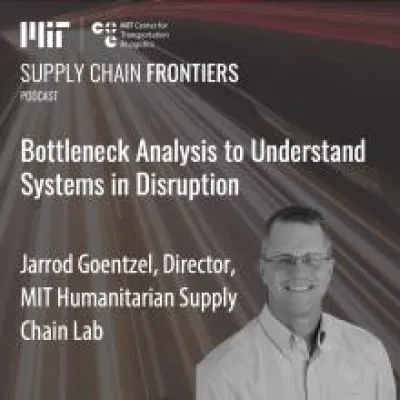Bottleneck analysis aiming to increase asset productivity has commonly been applied inside the four walls of production and distribution facilities. The pandemic disrupted global supply chains with dramatic shifts in demand and constraints in supply with cascading effects. Shippers then dynamically shifted traditional origin-destination patterns causing stress on the networks of logistics service providers.
As a result, bottlenecks in the global movement of goods continue to emerge in new locations and for longer durations. Today we speak with Jarrod Goentzel, director of The Humanitarian Supply Chain Lab about how they study dramatic disruption of supply and demand during disasters and have created tools to rapidly identify bottlenecks and dynamically determine interventions to increase flow.
We discuss their conceptual approach and simulation models using the fuel supply chain in the U.S. with use cases around recent disruptions such as the Colonial Pipeline cyberattack and Hurricane Ida.
